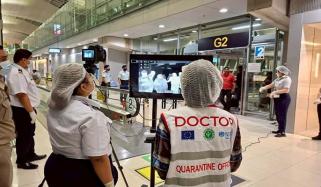
The World Health Organisation (WHO) and Coalition for Epidemic Preparedness Innovations (CEPI) on Thursday, August 1, urged political leaders and scientists to prepare for the next pandemic.
According to CIDRAP, WHO and CEPI asked researchers and world leaders to focus on families of pathogens and individual infectious microbes.
WHO also released a report named ‘Pathogens Prioritisation: A Scientific Framework for Epidemic and Pandemic Research Preparedness’ which includes the findings of over 200 scientists from more than 50 countries.
The author of the report wrote, “Thousands of known viruses and bacteria can infect humans, but only a relatively small number have caused pandemics or large-scale epidemics in history. Family Expert Groups (FEGs) were established for 28 viral families and one for bacteria.”
It further added, “The expectation was that there would be enough common ground within each FEG to allow consensus to emerge and to provide a basis for defining the risks associated with the various pathogens in each family and for selecting priority pathogens, prototype pathogens, and potential Pathogen X."
The experts have made a list of pathogens by family, highlighting the specific worrisome pathogens within every family. They have also ranked the individuals as well as families of pathogens, low to high, as per their potential to cause a public health emergency of international concern (PHEIC).
Experts of the report believed that the ‘continuous revision of this strategy will facilitate the ongoing assessment of risks associated with emerging infectious diseases and advancements in scientific research.’















